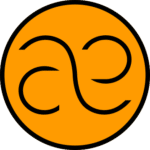In a previous blog, we looked at how role-playing games, like Dungeons & Dragons (D&D) could be used as therapeutic tools. Adding those with social difficulties and offering a safe space to explore various experiences and situations which could prove challenging in the real world.
With this piece, I’d like to briefly look at how role-playing experiences can be used within the world of education. Role-playing games (RPG’s) have an inherent flexibility and narrative framework that lends itself well to use within education, as it offers an easy mode and process for interdisciplinary learning.
What an RPG offer’s most importantly, and this applies to any age but is most likely best understood within the context of K-12 learning, is that they are narrative microcosms of the real world. Whether it is therapy, as we’ve seen, or education or business, being able to teach and practice useful life skills within a long-term, consequence-free environment is an incredibly useful and powerful tool that should really be utilized more.
At the core of RPG’s & Education
Having played D&D with friends for a while, I’ve come to appreciate the unbelievable flexibility that a role-playing experience has. Regardless of whether it is a fantasy setting such as D&D or a more real-world framework such as the Moerae Model for group work, an RPG has a multidisciplinary deliverable that can easily be used within an educational setting.
At its core an RPG offer’s, in no particular order, 4 main points:
- Creativity
- Writing skills
- Reading Knowledge
- Mathematics
A well-designed narrative scenario, or campaign to use D&D parlance, incorporates all 4 of those points and the variations upon them. It need not be a fantasy setting but can also be a historical setting. Let’s use the point of Creativity and imagine a campaign for ourselves as an example of what a K-12 RPG could look like and what it can incorporate.
First, we need a theme, a structure, let’s use a historical setting, one that everyone has some inherent knowledge about perhaps, how about the Second World War? That’s our setting, now we can build a narrative around it, maybe using a specific event will help us narrow down what we want, let’s take D-Day and the landings at Normandy, France. Already we’ve added historical events and geographic elements that students will learn about.
Second, we’ll need to personalize it, ensure that the students have a vested interest in the narrative. For ease and safety, we’ll choose characters within the Allied invasion force that will plan and eventually land on the beaches of Normandy. With that we’ve given the students a sense of responsibility as well, as you take them through the narrative and the events of the lead up to D-Day, they will need to learn about the planning that went into it. This can involve thousands of aspects, the meteorology of that part of Europe, it’s geographic uniqueness, the mathematics is required to determine the correct, the logistics around transporting that many troops, the level of communication required, and so on.
Thirdly, and finally, for now, as you lead your students through the events, they will research and need to produce their own narratives (imagine essay’s and a course in academic vernacular). With that writing and reading is incorporated, as well as literary knowledge. And if you are so inclined you may add other variations on top of it, such as ethical issues of war, hypothetical situations, and others to bring across what is required of a school’s curriculum.
That quick, and loose, example of how an RPG experience can be used illustrates the ease and power of it. Some readers may look at and feel that it is maybe not suited to an education environment, though certain educational systems such as the Waldorf schooling system use something similar in terms of the holistic presentation of education. Though the RPG experience takes it one step further, by making the student personally involved and responsible within the narrative. In essence, more value is placed in because they now have a character that needs to make it through to the end, and along the way, they “accidentally” learn something as well.


